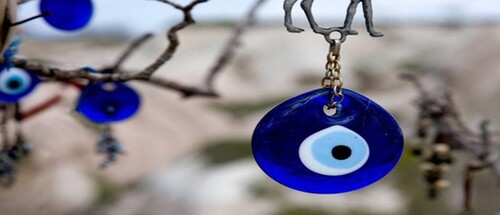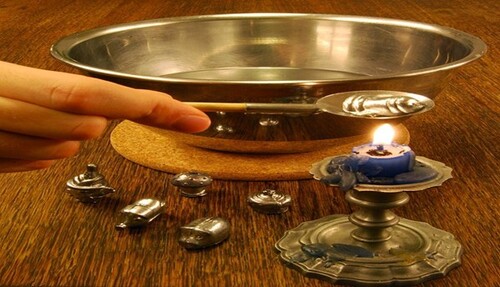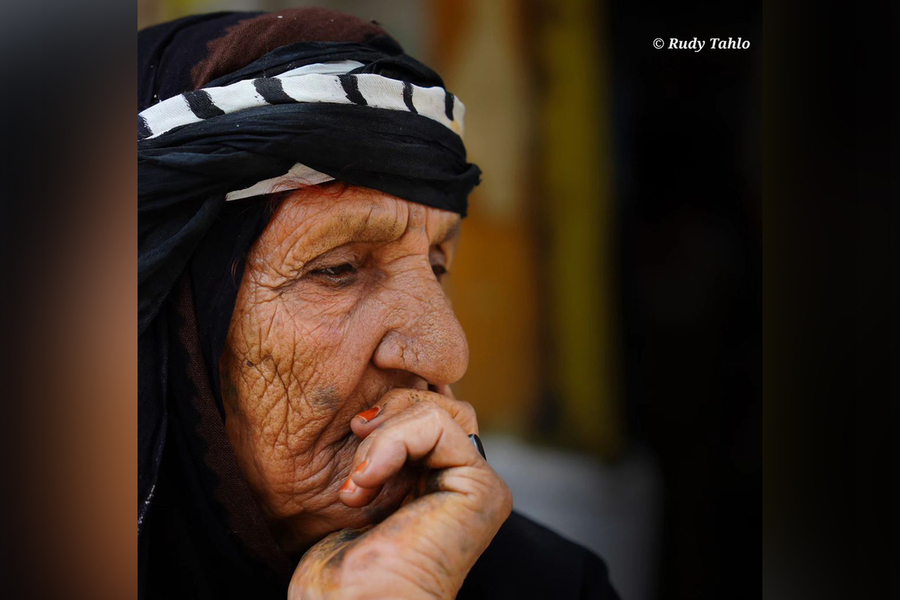Read the third part of this article here
(Reasons and Application)
Believing in the causes that help people avoid destiny
Nazar or Evil Eye
Most of the people in Kobane believe in the evil eye and they consider it a serious threat to Kobane society. Even nowadays, this belief is still common. Evil eye means some people's negative intentions that could affect children, a person, or the property of people. That person that has the evil eye may feel happy for the others but when they could not gain such successes in their own life, they would leave their negative intentions on the others' lives that would cause the target person some bad luck or even a disaster. Of course, some people possess this characteristic and some don't; these changes are based on the conditions in which they have been brought up.
Every community, no matter where they are, believes in some beliefs. These beliefs are different from one community to another. These beliefs depend on the religion these communities have. There is a belief in all parts of Kobane called "The Shepherd's Cane" and "Sheep's Horn". According to this belief: "once Moses, the prophet, ran into a shepherd on his way and saw him praying. He asked the shepherd what does he say in his prayer. The shepherd answered him: I say the shepherd's cane, the sheep's horn (this phrase in Kurdish means that our intentions matter the most). Moses told him: you pray in a wrong way. He taught the shepherd what to say in his prayer. Then Moses left the shepherd and went into the sea. As it is known, Moses's cane could divide the sea into two parts. In his journey, Moses once saw the shepherd following him while the sea had been divided as the shepherd had stepped into it as if he was also a prophet. The shepherd called Moses and told him that he had forgotten the prayer Moses had taught him. Watching what had happened when the shepherd had stepped into the water, Moses said: your prayer is just fine, pray the way you can. We are not different." This story tells the society that every person has their own ways of doing things and they do what they need to do based on their abilities and intelligence.

This belief can commonly be seen among the Arabs and all the Middle Eastern nations, and perhaps in other parts of the world, too. However, as it was mentioned earlier, those who have this belief, try to preserve it in their own ways. It is said that God has told men: "I am not in people's eyes, thus, be aware of other people's eyes." There is an old saying among Kurds that says: "Half of the bad luck is because of others' eyes".
The people tried to protect themselves from this bad luck, the people of Kobane used to hang a blue stone over their homes' walls in order to protect themselves from the evil eye. According to people's beliefs, this blue stone could protect them from those who look at them with jealousy and it would deprive disasters that could happen to them. They also used to keep Rue herb seeds or burn them from time to time to protect their household from the evil eye.

At the same time, more commonly, when someone gets sick, they would say that s/he has been under someone's evil eye effect. Thus, in order to help them get better and get rid of the evil eye, they would bring different things for them or do various kinds of performances.
Another way of protecting themselves from the evil eye was when someone would praise something or someone else, the person who had been praised would pinch themselves to avoid the evil eye. This set of beliefs about the evil eye can be found in other societies as well but perhaps in different forms.
Source:
Meeting the elderly people of Kobane








